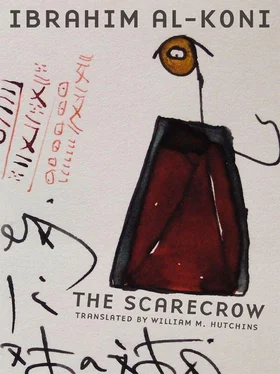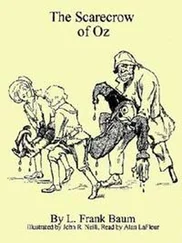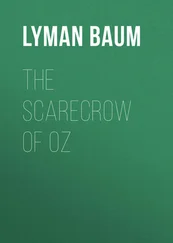How can a person find the way to the Pleiades, which served as a guide, a call, a promise, and a draught of water for the ancient wanderer?
3
“ Eygahan wattmmaghan taghzzit àd sirdin addunat dagh àman en sarian; às tenkaram tegmiam talgha dagh sagheran . Prophecy does not descend to a plain unless its inhabitants cleanse themselves with the water of solitude. Once you have finished, solve the riddle with sticks.”
The messenger from the female diviner placed the scrap of leather inscribed with this prophecy in their hands. Then they found themselves pawns to a gloomy silence that reminded them of the silence they had experienced when another messenger had come to inform them of the departure of the man they had chosen from among them as their puppet. He, however, had refused to play this game and had preferred to withdraw from a realm he had always considered nugatory. On that day, his obituary had been another prophecy that had terrified the desert, paralyzed all creatures, and changed the nature of things. Today’s silence, though, pervaded the council but did not affect creatures beyond their circle, for council members heard, over their silence, the bleating of goats returning from the pastures, the shouts of the herdsmen, the clamor of boys in the alleys near the sanctuary, and the cries of caravan traders in the commercial markets.
The commotion outside doubled the cruelty of the stillness inside the council chamber, but stillness is always washed with water from the heavenly spring of the Unknown and holiness. From ancient times it has been a forthright opponent of sophists who boast about the intellect’s authority, because stillness has never acknowledged any union save with strangers who flee to the homelands of solitude. For this reason, people of the nugatory feel embarrassed when silence lasts a long time, because it lays bare their hidden cowardice, which they wish to camouflage and hide — even from themselves.
For this reason, perhaps, they mumbled, cleared their throats, and pretended to cough. For this reason, perhaps, the chief merchant resorted to the use of his tongue. “Obtaining a prophecy is always easier than interpreting it.”
The rebel jinni commonly known as the tongue had escaped from its flask, and the pillars of silence were shaken. Then sanctity fled to the most distant land. Imaswan took heart and supported his fellow council member with the enthusiasm of a person who had been forced to refrain from speaking for a long time. “The danger of a prophecy is when its good news becomes destructive thanks to a flawed interpretation. So beware!”
The hero also attacked from his corner. “It would be best for us to take a lot of time to consider this if we wish to avoid ruin.”
Imaswan seconded him by releasing the muscle that does not confirm or corroborate: “A person who disdains the exegesis of prophecy is like someone who deliberately provokes a viper.” Silence returned to the chamber, but sanctity — the being that had fled to the most distant land once stillness was slaughtered — would never return.
Then people heard from the tongue of someone who normally did not speak. At that time the voice of Amasis the Younger, who was known for being taciturn, burst from his corner. “We won’t obtain a trustworthy interpretation of the Spirit World’s prophecy until we follow the path of the ancients.”
Their curious, inquisitive looks preyed on his eyes. Then the man with two veils turned toward him to take charge. “How did the ancients do exegesis?”
“Isn’t it said that they retired to the pastures and sought refuge in caverns and in deserted acres whenever they wished to proceed with any weighty matter?”
The chief merchant looked round at the eyes of the council members, who seemed as astonished as he was. Then he gazed at the eyes of the speaker, as if seeing him for the first time. He declared, “I acknowledge that this reading had never occurred to me. Doesn’t this idea provide the key to interpreting the first section of the allusive statement?”
Imaswan repeated the first half of the prophecy like a poet chanting verses of poetry. Ah’llum, without meaning to, repeated it as a refrain after him. The man with two veils, however, silenced them with a new prophecy: “We must head to the grazing lands. Prepare to depart tomorrow.”
The hero asked with astonishment, “But what about the second part?”
The man with two veils jumped to his feet and replied, “Solitude brings another prophecy!”
4
In the solitude of the pastures the Spirit World returns from the labyrinth to dwell in stillness. Then babbling confusion escapes from souls to satisfy their thirst by fleeing to realms that within their fortresses shelter bazaars where creatures’ desires and the fortunes of the physical world loiter. So the desert steps aside with the wayfarer to give him the good news that has always been a secret with which wanderers in the desert homeland have been enamored: “All corners deceive you when they tell you that you are a transitory creature. I differ from the Law of the spiritual lands and tell you that you are an immortal creature — immortal, immortal.”
Every corner, every void, every empty space, every rock, every height, every tree, every bird, every mirage, and every song of silence brings man the good news of immortality in the world of the desert. So only a minority know that solitude’s splendor derives from this and that the obscure delight sorcerers call happiness comes from the loins of a glad tiding the tongue cannot communicate. Then the deluge intensifies, and those people find themselves captives of an ecstasy they had never previously experienced — not even when their ears were assailed by songs of yearning. So they released shouts of madness and approval, intoxicated by the voices of the girls singing and astonished by the vision that glowed in the sparks of longing.
In the emptiness of solitude, the council members separated and the desert tempted them with the magic of silence. So the first of them climbed a nearby hill to visit a massive tomb, which resembled a barren stone slab, because foreign adventurers had profaned its sacred space and excavated the tomb to search for treasures. The second man crept into the barren land to the north. There a mirage seized him and led him a long way into the labyrinth before casting him into a pit that rains over the years had filled with clay ripples and dirt buckles that hid truffles. The third man strolled down the trail to the south, and solitude tempted him with road dreams. So he went a long way and reached the foothills of the blue mountain chain, where he lingered on the slopes, struggled past boulders, peeked into caverns, and visited the dwellings of the jinn as an invited guest with whom they shared treasures. Then he spent an entire day touring the cave walls to experience the life of the first people through their rock art. The fourth man headed west and climbed the heights, descended onto the plains, traversed austere expanses strewn with gray stones that had been burned by the lava of volcanoes and the eternal fires of the suns. Then he perceived in the distance a camel that herdsmen had lost. She was trailed by startled newborn calves. Braying around her were camel studs expectorating the froth of their rut and extruding from their mouths dulla faucial bags the size of water skins. So he approached her swollen udder like a calf, thrust his head between her thighs, and seized the teat to nurse from her milk.
5
Amasis the Younger shouted in an unfamiliar voice, “The key! I think I’ve found the key.”
The members of the council stared at him while pressing into a circle, seeking refuge near the fire from the evening chill and pretending to catch tongues of flames between their palms the way boys do. Curiosity gnawed at them, but the pride of the noblemen prevented them from uttering a question.
Читать дальше












